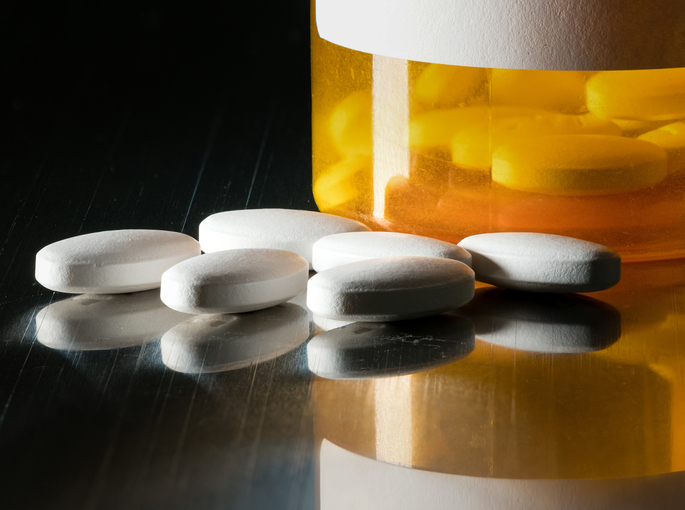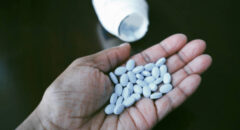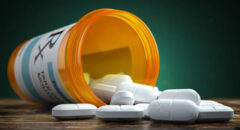 I was scared and intimidated.
I was scared and intimidated.
I was standing in a cold and poorly lit hospital emergency room next to my father who was curled up on a stretcher. This scene was all too common. He would suffer at home until it became impossible. Then, we’d take a field trip to the hospital to get “fixed.” He’d be released; then, over time, like clockwork, the cycle would recycle. I listened to him describe his “drugs of choice” as they called them, to his nurses and physician.
Tylenol 3 with Codeine
Vicodin
Oxycontin
Percocet
Morphine
Cocaine, cigarettes, drugs…
DRUGS were his drugs of choice. He was addicted to opioids. He had become dependent on opioids due to being shot during a robbery. The bullet was lodged in a precarious place and was not easily removed. It left him in so much discomfort that he couldn’t function. After his injury, he entered the hospital as an emergency patient and left as a life-long patient addicted to medication.
From Ache Management to Addiction
Like many people who are prescribed opioid medication for ache management by their physician, they can begin their journey taking their medication as directed. Over time, their utilization of their medication increases. They begin to look forward to taking their medication and need refills earlier than they are supposed to get them. Then life begins to fall apart.
What I did not know on the day that I heard my father state his drug history aloud, but now understand, is that opioid addiction is a disease like any other chronic disease.
In 2013 an estimated 2.4 million people were dependent on opioids, according to the Substance Abuse and Mental Health Services Administration (SAMHSA). Drug overdose is now the leading cause of death for Americans under the age of 50, surpassing car accidents. In Ohio, at least 4,100 died last year- a 36% increase from 2015 when the state led the nation in overdose deaths. West Virginia and Kentucky are not far behind and have seen a significant increase in overdose deaths.
Opioid dependence is a physical addiction to prescription medication, heroin, etc. It is a complex medical condition that requires a sophisticated approach to quality care. Opioid dependence can start with a legitimate medical issue that can quickly cross over into dependence on the medication used to suppress its symptoms. It can also begin with a psychosocial/mental illness known as a co-occurring disorder. Discomfort can be physical or mental.
With an average of 144 people per day dying from overdose deaths, here are (at least) five things you should know about opioid addiction:
1. We don't have time for stigma.
Many people who struggle from opioid addiction may be reluctant to ask for help because they believe that they will be judged. They will deny themselves care and support based on this belief. It is important to get help as soon as possible. There is no need to wait until the bottom falls out. For every person who is suffering and feels judged, there is a resource of support waiting for you. Your tribe is out there and they’re ready to help.
The DATA 2000 is a law giving physicians the ability to treat opioid addiction on an outpatient basis in the privacy of their offices. So, if you visit a doctor to be screened, diagnosed and treated for opioid addiction the other patients will not know if you are there for hypertension, diabetes or a common cold. Your privacy can remain intact and your insurance is likely to cover your treatments. If a higher level of care is required there are quality inpatient, residential and medication-assisted therapy programs available. It is important that you seek and receive help as soon as possible so that you can get back to the quality of life that you deserve.
2. Quitting on your own is likely not to work.
According to the National Institute on Drug Abuse (NIDA), many people believe that they can stop using opioids on their own. I have witnessed patients attempt to stop using on their own and be thrown headfirst into the deep end of the pool of withdrawal. Symptoms resemble really horrible flu times 100, including but not limited to runny nose, watering eyes, sweating, backaches, joint aches, nausea, vomiting, and diarrhea.
It is this very uncomfortable cycle of withdrawal (in part) that drives people back to drug use. If you’ve tried to quit on your own but can’t, it is time for you to seek and receive help with the assistance of a professional.
3. Healing takes time. Be patient with the patient.
Once you’ve sought the care you will need to have a comprehensive treatment plan and seek psychosocial support. It’s vital to find out what took you down the path toward opioid addiction in the first place and then find solutions with the support of your healthcare team. Each person is different and each plan of care is individualized. You will be required to create recovery goals but try not to be too hard on yourself. You will get there when you are healthy and it is up to you to determine what “healthy” looks like in your life. It may mean you’ve returned to work, your spouse has returned to the marital home, you have full custody of the kids again, etc.
4. Be patient with your family.
The disease of addiction has many symptoms that have hurt you and those that you care about. Keep in mind that your family will need to recover, too. They may need to heal themselves before they can offer you the type of support that you need. Don’t be surprised or offended if they don’t understand your journey right away. Their healing process may be different from yours so it is important that you continue to work toward getting better.
5. Preventing relapse is critical.
It is important for you to understand your individual triggers so that you don’t fall victim to behaviors that you’ve worked so hard to leave behind. After a period of remission, your tolerance for drugs has significantly decreased and you’re not physically able to do the same drugs and amounts that you used to when you were active in your addiction. Make sure that you have Naloxone in your home and that your family knows, what it is, where it's stored and how to use it.
Naloxone is an opioid antidote that has been used primarily by healthcare professionals and law enforcement to counteract and reverse opioid overdose. Now, Naloxone is sold for community use in pharmacies across the nation. The “Good Samaritan” laws in your state likely provide immunity for a loved one or friend who has to administer Naloxone. Please review the laws in your state to understand what they cover along with any possible exclusions.
When my father was diagnosed with opioid addiction there were few treatment options for our family. It simply was not viewed as a problem within our community. Sadly, my father did not have what he needed to recover but you or your loved one does. I encourage you to visit SAMHSA.org. Read the data/information and utilize the treatment locator to find support in your community.
 Jamelia R. Hand MHS CADC MISA I is a Certified Addictions Counselor, Co-Occurring Disorders Specialist and Opioid Addiction Consultant. She believes that we need as many Substance Use Disorders Treatment options as we have people who are suffering, including the integration of Medication Assisted Treatment and Behavioral Health Therapy. She is a passionate educator, advocate for mental health parity, substance use disorder treatment and is a national speaker on opioid addiction issues. She is available for consulting and contract engagements with clients in SUD/mental healthcare, medical and public health systems. For more information, visit vantageclinicalconsulting.com.
Jamelia R. Hand MHS CADC MISA I is a Certified Addictions Counselor, Co-Occurring Disorders Specialist and Opioid Addiction Consultant. She believes that we need as many Substance Use Disorders Treatment options as we have people who are suffering, including the integration of Medication Assisted Treatment and Behavioral Health Therapy. She is a passionate educator, advocate for mental health parity, substance use disorder treatment and is a national speaker on opioid addiction issues. She is available for consulting and contract engagements with clients in SUD/mental healthcare, medical and public health systems. For more information, visit vantageclinicalconsulting.com.








